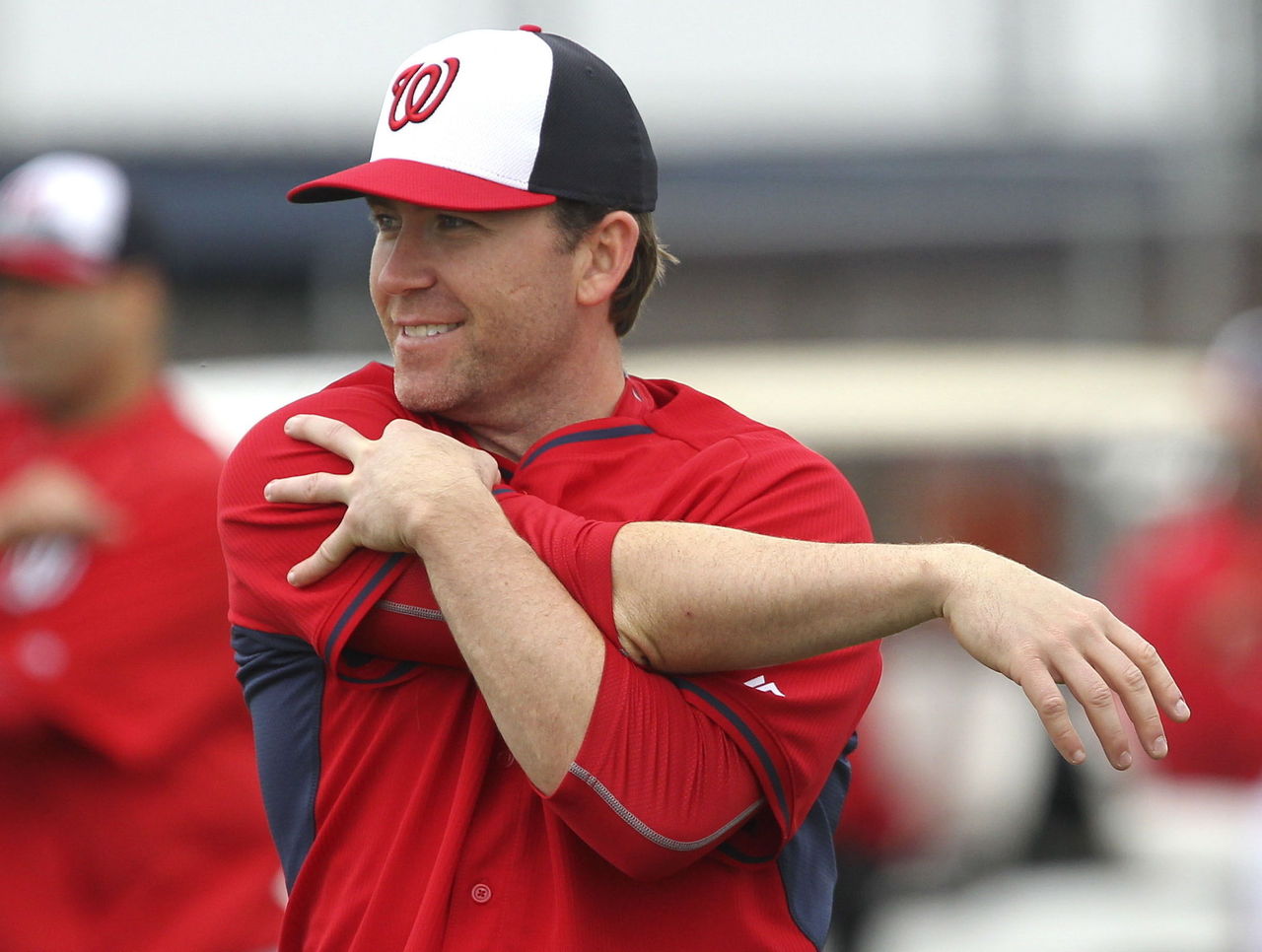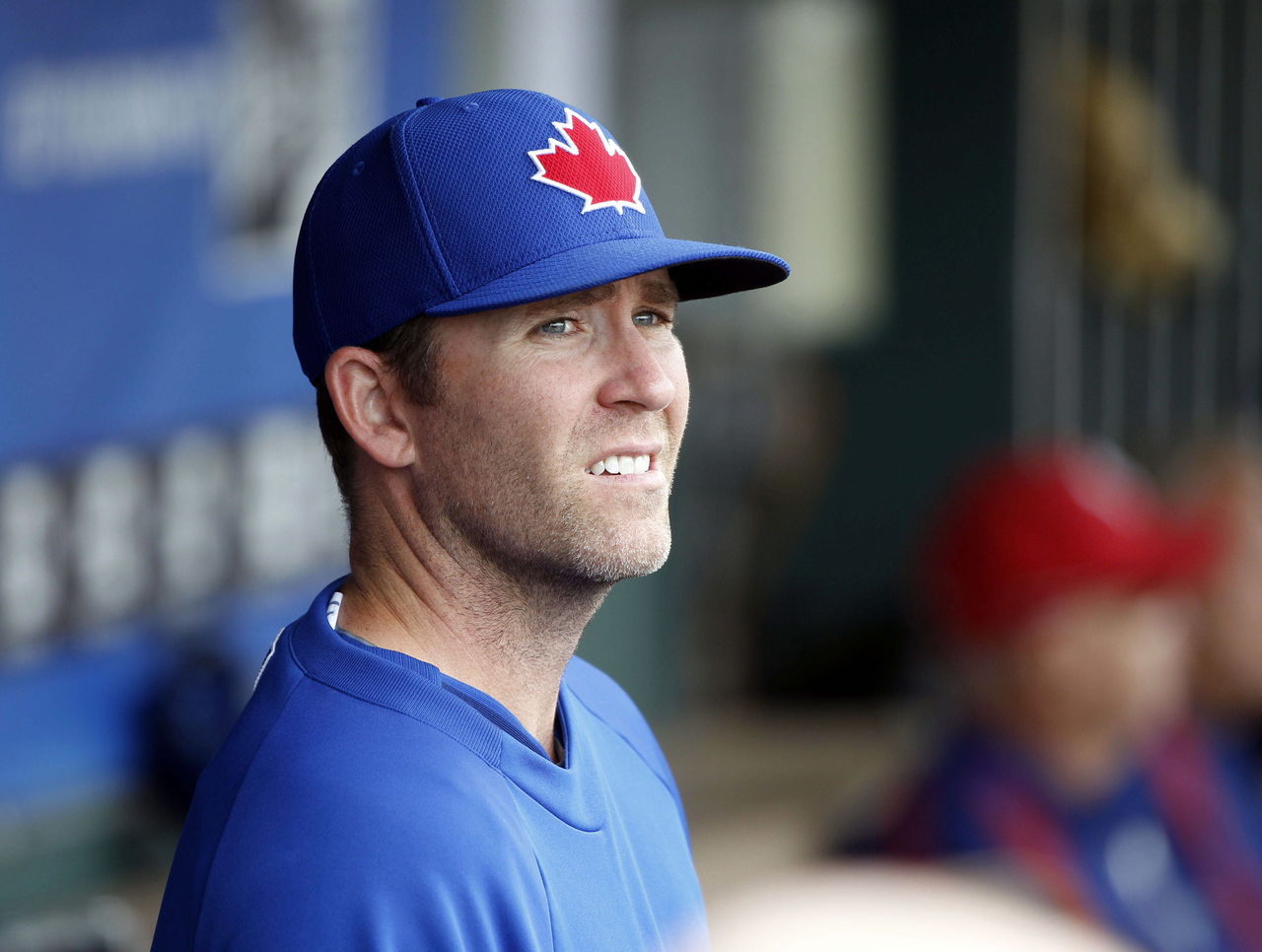Casey Janssen Q&A: On Mexico, sabermetrics, and his MLB comeback quest
While major leaguers work out their offseason kinks in Florida and Arizona, Casey Janssen is headed to Mexico - and not for a beach vacation.
The former Toronto Blue Jays closer is looking to resurrect his major-league career in an unconventional way, signing on with Acereros del Norte of the Mexican League. The 35-year-old right-hander hopes a strong showing there will generate interest from the majors, where he last pitched with the Washington Nationals in 2015.
I spoke with Janssen as he finished preparations for the big move:
You were last in the majors with Washington, and spent some time in the Red Sox organization last year. What have you been up to since then?
I had an opt-out in August, and my wife was, at that point, eight-plus months pregnant. The Red Sox basically said "we're not going to call you up in September." If I opted out, I would be free to look at other opportunities. Nothing really came that quick, so it was an easy decision to get home and be there for my wife and for the birth of my baby, which was a special moment.
Talk about the decision to go to Mexico. What was the appeal?
I had a buddy (former major-league pitcher Josh Roenicke) who played in the Mexican League last year. He basically said he had as much fun as he's ever had playing baseball. It gives me an opportunity to continue playing and to continue getting exposure playing at a competitive level.
It also allows me to become a revolving free agent. If something were to happen in an organization and I happen to be a fit, I wouldn't necessarily be trapped in a certain system and not be able to get out. It allows a little bit of flexibility to keep playing, but then still have the goal of getting back to the big leagues. It's just a different avenue to get there.
Will you have a defined role with the team?
Their closer is coming back, so they basically said that (pitching) the eighth inning would be my role. If something were to happen and I got an opportunity in the ninth, they're not necessarily ruling that out. More than anything, the team I'm playing for is trying to create a good atmosphere, a winning team, and I think that's most important.
When it's no fun and your team's not very good, it's easy to lose focus and get driven away from the game. If you're a competitive team with a chance to win every night ... I still have those competitive juices that are keeping me continuing to play, and being on a competitive team like that is going to accomplish the heart-pumping competition that I love.

You want to get back to the majors, but you don't have a 95-mph fastball. How do you envision your path to the bigs?
That's a little bit of the frustrating part. It's a young man's game, and it's a velocity game, and so many of the front offices and the decision-makers are using different sabermetrics that appeal to them. First and foremost is velocity. Spin rate is a huge thing now. Strikeouts are a big thing. It seems like teams have sort of lost sight of just getting outs.
A lot of times it was, "I don't care how you get three outs, just get three outs before they score." Now it's, "I don't care if you get three outs, if you have a 97-mph fastball and you give up a run," ... it's almost like it's not your fault because you throw 97. If you had a 90-mph fastball, that's the reason why you gave up the runs.
It's a little frustrating, but it is what it is. I'm not bitter about it, it's just the way the game has kind of swung toward this fad, so to speak. I guess I'm just hoping that I stay ready and sharp, and if a team realizes that velocity doesn't tell everything, that someone comes calling and they appreciate location and command and changing speeds and fielding and doing all the little things.
I can't throw 95. I just physically can't. And if a team wants me to throw 95, I have no chance. I understand that. Hopefully one of these 30 teams sees my track record, sees that I never really threw hard but I was able to be competitive and get big-time outs, and hopefully someone remembers that and takes a shot on me again.
What can you do to improve your chances?
With the lack of intriguing velocity, you pretty much have to be darned near perfect with your command - and I'm okay with that. I think a perfectly executed pitch at 90 mph is going to get a hitter out. So many times these guys that have these big fastballs, they have no idea where (the ball is) going. And guys in the majors can hit 97. The hitters are too good.
For me, it's just continuing to be perfect with my command. I'm still working on my change-up, which I didn't throw a bunch the past few years. There was a time when I lost a bit of my slider and I'm trying to get that back to being a pitch I can really rely on. I just want to be the five-pitch pitcher that I am and that I was, and be able to execute any pitch at any time like I have to do.
What other factors might hold you back in your quest?
Honestly, teams don't really value experience as much anymore. They think experience is overrated if you have talent.
It's interesting to me, because my resume warrants some kind of job, even just a Triple-A job as the eighth guy in a seven-man bullpen or as an insurance plan. But it seems they'd rather have that 24-year-old that comes in and blows the doors off than the guy with the experience who knows that having pitched on the road in Yankee Stadium has some value.
Some teams value clubhouse chemistry and leadership, and others think "we just want talent, talent wins." And that overrides everything.

You were a popular player during your time in Toronto. What memories do you have of playing with the Blue Jays?
I've had so many great memories from Toronto. I definitely had a blast.
My fondest memory would be my debut. It was awesome, even though it wasn't my most successful outing. Just to say I made it, and to have my parents there, and to be able to share that with them, and to honor their hard work and sacrifice and dollars spent ... to finally get there was really special.
I got to meet a lot of great teammates and really embrace the city. A huge moment in my life was meeting my now-wife there, so I'll forever be grateful to Toronto for that. And I loved how the fans embraced me, and I tried to embrace them and compete hard for them every day. I consider it my second home, not only in sport, but also in life.
You're now 35, with a wife and a young daughter. How long will you give this opportunity before ultimately calling it quits?
The reason I'm going to Mexico - and I told my wife this - is that I don't think I'm done yet. Between my body, my competitiveness, and how I performed in Triple-A last year ... I felt like Triple-A was easy. If I was struggling and grinding to get three outs every inning, I could walk away with my head held high and say it was a great run.
But I still have a passion for the game, a desire to compete and to win. That hasn't left me yet. Leaving my wife and daughter is difficult, but I'm doing it because I think I still can. If you don't have that mentality, I think it goes really quick. You'd be finding a new line of work. But as I sit here, I still have what I would call unfinished business. I would love to finish it.